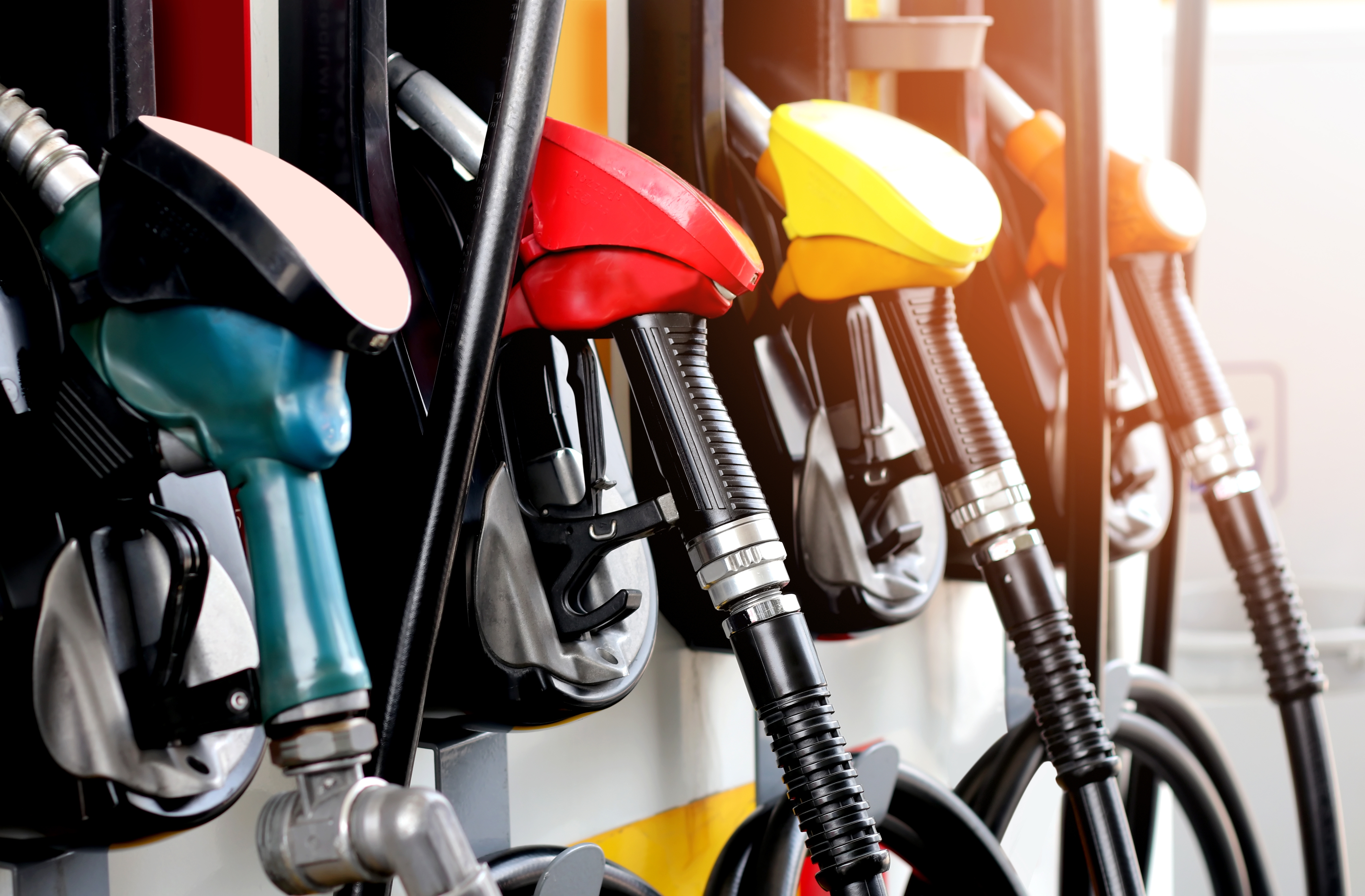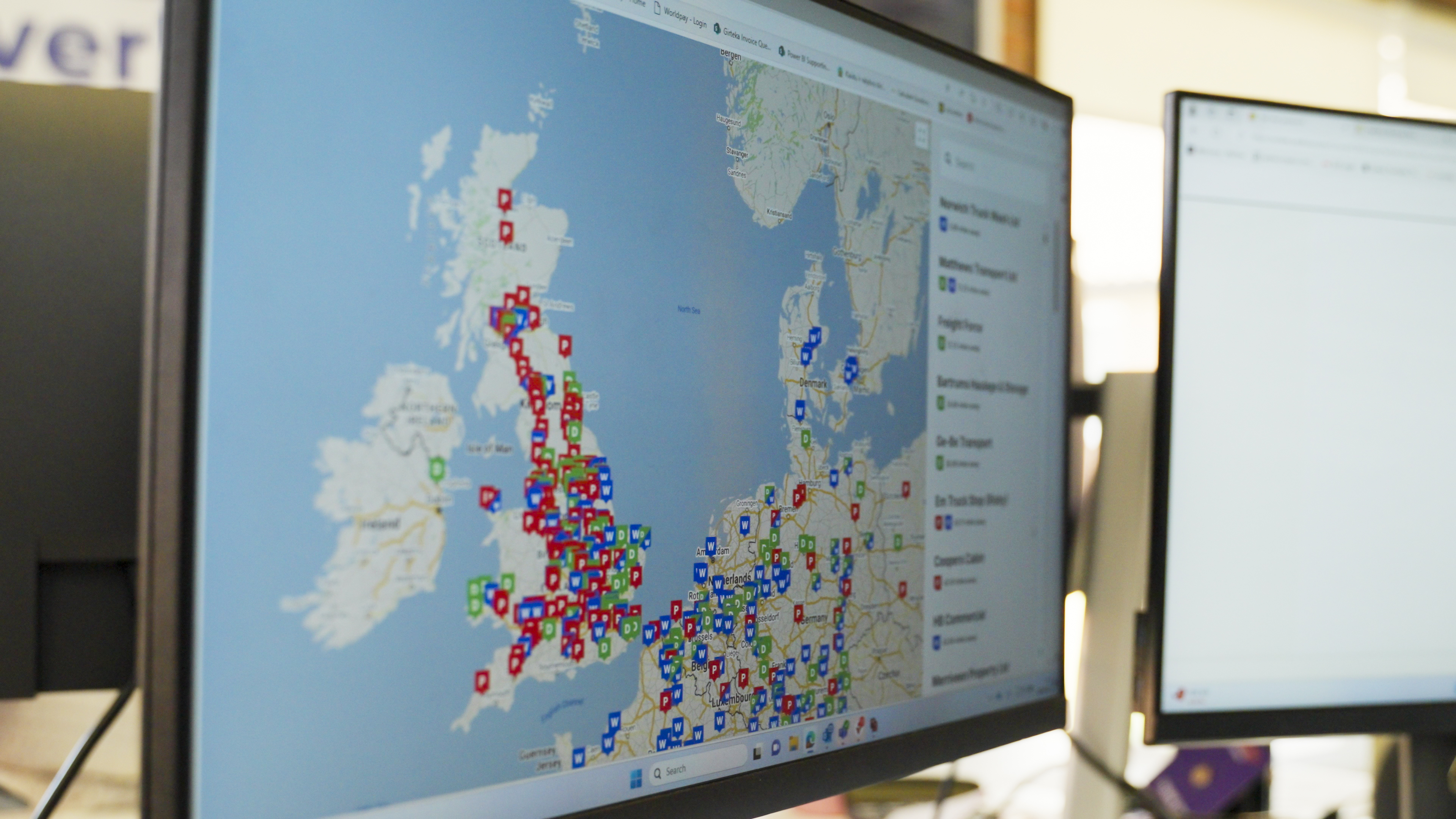
Miranda Blake
Tarjetas de combustible en el transporte: cómo SNAP simplifica la vida de las flotas
Creado: 20/11/2024
•
Actualizado: 20/11/2024
La necesidad de soluciones eficientes de gestión de flotas nunca ha sido tan acuciante. La Cuenta SNAP es una potente alternativa a las tarjetas de combustible tradicionales, ya que ofrece una plataforma completa y fácil de usar que simplifica los pagos y mejora la eficiencia operativa. Al abordar problemas clave como el control de costes, la carga administrativa y la satisfacción de los conductores, estamos allanando el camino para una nueva era en la gestión de flotas.
Solución de pago integral
Cuenta SNAP es una solución de pago de flotas "todo en uno" que revoluciona la forma en que los conductores gestionan sus gastos. Utilizando solo el número de matrícula del vehículo, pueden pagar una serie de servicios, entre ellos:
- Aparcamiento: El acceso a más de 380 aparcamientos exclusivos para camiones en toda Europa garantiza que siempre tengan un lugar seguro donde descansar.
- Lavado: Con más de 230 instalaciones disponibles, mantener los vehículos limpios no supone ningún problema.
- Combustible: Los conductores pueden repostar en estaciones asociadas, agilizando las operaciones.
- Tarifas de cruce de Dartford: Los pagos automatizados de los peajes eliminan la necesidad de gestionar el dinero en efectivo.
Reducimos significativamente la carga de llevar varias tarjetas o dinero en efectivo, ya que nuestro software consolida estos diversos pagos en un único sistema.
Administración simplificada
Para los gestores de flotas, las tareas asociadas a las tarjetas de combustible pueden resultar abrumadoras. Afortunadamente, la Cuenta SNAP facilita estos procesos de varias maneras:
- Factura única: Todas las transacciones se compilan en una sola factura, lo que reduce drásticamente el papeleo y los gastos administrativos.
- Mantenimiento de registros automatizado: Esta función simplifica los informes fiscales y la gestión financiera, ahorrando un tiempo valioso.
- Gestión de camiones: Existe la posibilidad de añadir tantos vehículos como sea necesario y agruparlos según su tipo o destino.
Esta automatización y centralización garantiza que los gestores de flotas puedan centrarse en decisiones estratégicas en lugar de en el papeleo.
Mayor control de costes
La Cuenta SNAP ofrece potentes herramientas para optimizar los gastos:
- Límites de gasto: Los gestores de flotas pueden establecer restricciones y autorizar las compras, garantizando que los gastos se mantengan dentro del presupuesto. Descuentos: Tarifas exclusivas en nuestra estación de servicio asociada, Certas Energy, que permiten ahorros significativos.
- A diferencia de los sistemas tradicionales de tarjetas de combustible, no hay cuotas iniciales de configuración o suscripción, lo que facilita la puesta en marcha.
- Sin cargos ocultos: Eliminamos los recargos que suelen imponer las compañías de tarjetas de combustible por los servicios de parada de camiones, garantizando la transparencia en los precios.
Estas funciones permiten a las empresas gestionar eficazmente su gasto en combustible y servicios, lo que se traduce en una mayor rentabilidad.
¿Le interesa saber cómo se benefician otros de SNAP? Lea nuestro estudio de caso.

Ventajas del conductor
La Cuenta SNAP se ha diseñado pensando en el conductor, ofreciéndole numerosas ventajas que mejoran su experiencia en la carretera:
- Pagos simplificados:** Olvídese de hacer malabarismos con varias tarjetas o dinero en efectivo. La sencillez de utilizar sólo la matrícula del vehículo para realizar las transacciones cambia las reglas del juego.
- Con acceso a más de 600 socios de servicios en toda Europa, pueden encontrar fácilmente los servicios que necesitan.
- Capacidad de reserva anticipada:** La aplicación intruck permite reservar fácilmente plazas de aparcamiento para camiones, garantizando que los conductores puedan asegurarse sus plazas con antelación.
Al simplificar la vida en la carretera, mejoramos la eficiencia de las flotas y aumentamos la satisfacción de los conductores, lo que nos convierte en la opción preferida de muchos operadores.
Seguridad y prevención del fraude
En un sector en el que la seguridad es primordial, la Cuenta SNAP incorpora varias funciones sólidas para proteger los activos de la flota:
- Matrículas registradas: Cada transacción se basa en una matrícula registrada, lo que garantiza que sólo el personal y los vehículos autorizados pueden efectuar pagos. Control de gastos: Los gestores pueden establecer límites, lo que reduce el riesgo de uso indebido. Opciones de aparcamiento seguro: Muchas de las ubicaciones asociadas ofrecen funciones de seguridad mejoradas, lo que proporciona tranquilidad a los conductores.
Estas medidas se combinan para crear un entorno seguro para las operaciones de la flota, salvaguardando tanto los vehículos como las finanzas.
La evolución de las tarjetas de carburante
Las tarjetas de combustible han sido la piedra angular de la gestión de flotas durante años, pero las tarjetas de combustible tradicionales suelen tener comisiones ocultas, opciones de servicio limitadas y procesos administrativos engorrosos. En cambio, SNAP Fuel aborda estas deficiencias ofreciendo una solución moderna y completa que satisface las demandas de la gestión de flotas contemporánea.
Diferencias clave entre las tarjetas SNAP y las tarjetas de combustible normales
Diferencias clave entre las tarjetas SNAP y las tarjetas de combustible normales](https://prodsnapstorage.blob.core.windows.net/public-news/0b050d22-dcfa-444d-8733-971f9dd4e68a-SNAP%20Account%20vs%20conventional%20fuel%20cards.png)
Testimonios de clientes
¿Se pregunta cómo se han beneficiado otros de la Cuenta SNAP? Esto es lo que dicen algunos operadores de flotas:
- Fenwick Haulage: "SNAP ha transformado nuestras operaciones. Se acabaron los problemas con los recibos; nuestros conductores simplemente utilizan su registro. Es un cambio de juego".
- L Cunningham & Daughter Haulage: "La flexibilidad que proporciona SNAP ha sido inestimable. Nuestros conductores pueden aparcar sin preocuparse de los pagos por adelantado, y la facturación es perfecta."
- Wincanton: "La facilidad de uso es incomparable. Nuestros conductores pueden reservar aparcamiento y pagar sin necesidad de efectivo o tarjetas, lo que simplifica mucho su trabajo."
- Jack Richards: "SNAP ha mejorado nuestra eficiencia y ha reducido los costes de forma significativa. Es una herramienta esencial para nuestra flota".
Si desea cosechar los frutos de sus propias operaciones de flota, póngase en contacto llamando al +44 (0)1603 777242.


